 Here’s a great secret about writers: it doesn’t matter whether you write fiction, non-fiction, juvenile or children’s books, magazine articles, blogs, poetry, op-eds, plays, ads, sports, greeting cards, catalogue prose or even obits. Writing is writing.
Here’s a great secret about writers: it doesn’t matter whether you write fiction, non-fiction, juvenile or children’s books, magazine articles, blogs, poetry, op-eds, plays, ads, sports, greeting cards, catalogue prose or even obits. Writing is writing.
If you want to become a writer, stack the odds in your favor by establishing a professional attitude that says writing is your job. Perhaps not your day job, primary job or even a money-making job, but a job with a commitment to regular hours and perseverance.
Success depends on more than talent and luck (although both are very helpful). Anyone can actually become a published writer. You can put a few words on paper, print a book, and become a published author. You can post articles on an internet site. You can create an e-book and sell it online. All of these may meet your goals and give you something for family and friends.
You may have never considered the importance of treating your writing career as a business. When you think of writing as your job and treat it as you would any other paying job, you begin to realize that managing a writing career involves the same steps as planning and creating a start-up business. When you are partnering with others, in this case, an agent, editor or publisher, you must convince them your business is worth their time, energy and investment.
Building a writing business requires intentional steps to get the project from the brain to the pen and then, to print. Without goals, you have no direction, no measure for success, and no business plan to steer your career. The first step in developing a writing business plan is setting goals. Goals tell you where you are going with your writing career; your business plan tells you how to get there.
A business plan should be clear, quantified, focused and realistic. Sample elements you may want to include are:
- A Mission Statement, describing the nature of your writing business and your target market
- Your Goals, both short-term and long-term
- Your Product, Market and Competition;
- A Marketing Plan, with strategies for promoting and selling your product and your platform(s)
- Financials, equipment, materials, and services you need to get where you want to go.
If goals are your chart, the mission statement is the anchor that keeps you from being dragged off course. After you have developed a mission statement, use it to begin creating a business plan. A business plan requires research, preparation and planning.
Creating a writing business and a career requires that you develop projects that meet consumer need and want. You must learn what sells. Not just what is selling today, but what will sell two to three years from now. Realistically, the publication of the book you are writing now is one to three or more years in the future. A writer must have a finger on the pulse of tomorrow’s market.
The marketing section of your business plan is similar to a book proposal marketing plan, with one major difference. Your business plan covers your entire career, rather than just one project, although you might only have one project when you create your business plan. A business plan gives you the opportunity to broaden your focus to promote yourself as a writer, and your career. Think of it a part of your platform. Your business plan describes where you want to go as a writer, and how you plan to get there, as well as your definition of success. When you commit your dreams to paper, when you can see them in print, they begin to move from wishes or dreams to reality.




